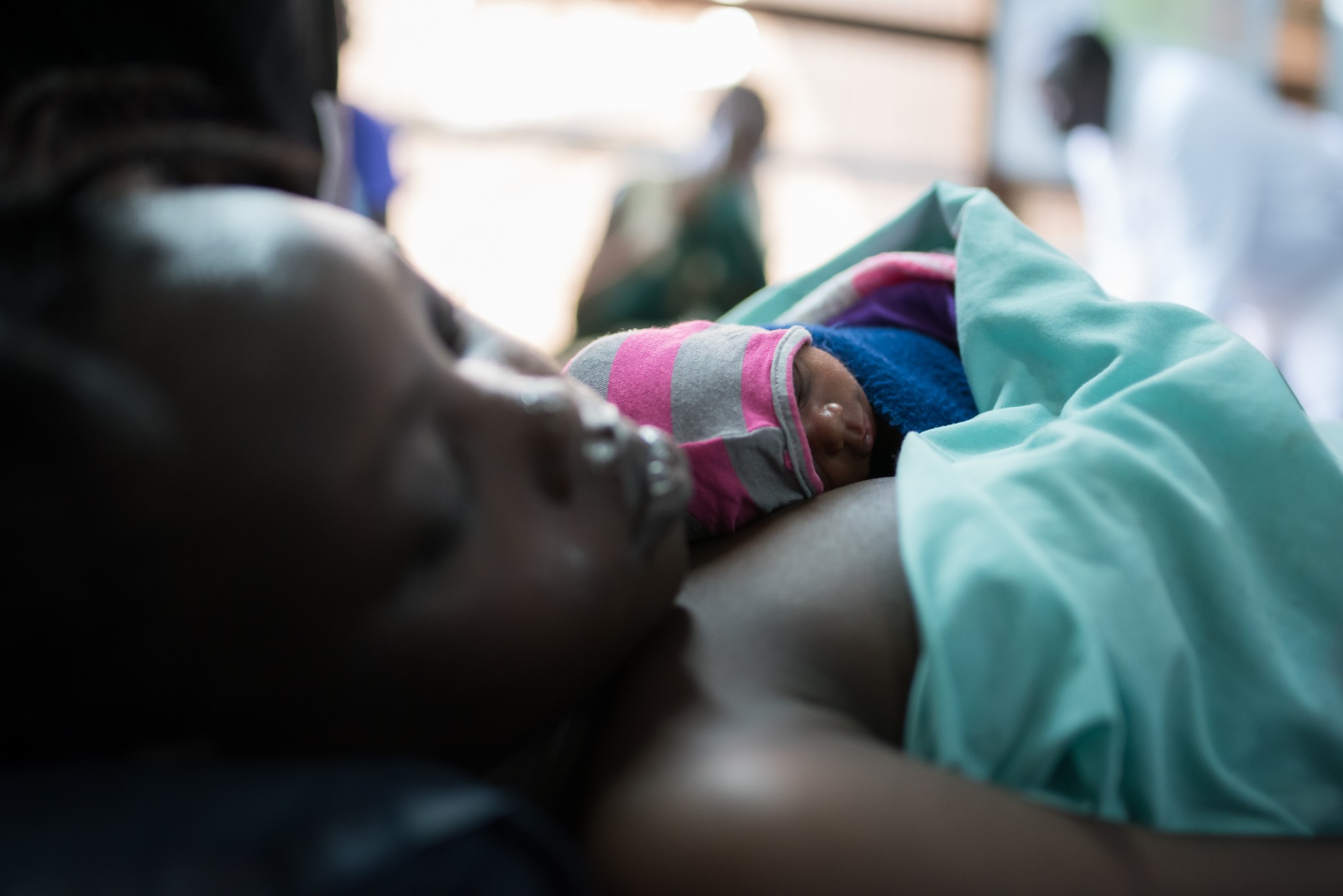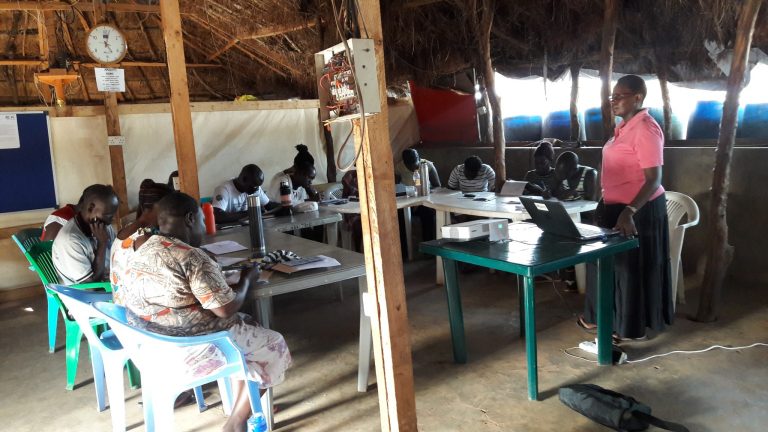My dream to become a midwife began in 1991 when I performed as a nurse in a skit for the president of Kenya. This is what made me consider the nursing profession, though at that time, I didn’t know what it meant to be a nurse. As I began my training in community health nursing, I found I enjoyed every minute of my midwifery courses, so I decided to focus on reproductive health. I’ve now been a midwife for 12 years.
Immediately after qualifying, I worked as the in-charge of a maternity ward, focusing on quality care for mothers. This was very important because we were delivering the services first and only asking for payment after the postnatal care visits at the third and sixth week. So we really had to be accountable for the quality of the care we provided. This gave me an opportunity to learn more about quality of care and the importance of focusing on maintaining quality services.
Now I support refugees in three camps in South Sudan as a reproductive health manager. I am involved in program design, planning, and implementing and monitoring reproductive health services in the camps. I supervise midwives and ensure they deliver a package of high-quality reproductive health services to mothers and babies, including antenatal care, basic emergency obstetric care, postnatal care, newborn care, family planning, and clinical care for rape survivors.

I also provide training on maternal and child health topics, including infection prevention and quality assurance. We have been testing a training curriculum designed especially for healthcare providers working in settings like South Sudan to provide care for mothers and newborns. Learning from this study will contribute to revisions of the Newborn Health in Humanitarian Settings Field Guide, and I will be presenting results from this study at the Congress of the International Confederation of Midwives in Toronto, Canada, in June.
We midwives face multiple challenges in our work. First, when there are so many opportunities for midwives elsewhere in East Africa, it is not easy to convince skilled personnel to work in this difficult conflict setting. In addition, most of the qualified nurse midwives are just out of school. Because of their inexperience, they need a lot of support, mentoring and coaching to develop their skills and become effective.
The refugees face challenges as well. They are displaced, and their basic social units and family support systems have been disrupted. While health facilities are available, they may not be accessible due to distance, cultural and traditional beliefs, or insecurity. Many fear walking to the facilities, especially at night, because of police harassment. Others do not want to leave their families unattended while they are in hospital.
We are lucky to have relatively well-equipped facilities, although our maternity wards are semi-permanent structures, and we cannot offer mothers the complete privacy they would need to feel more at ease. The referral hospitals also lack resources. The county hospital, for example, has only one functioning incubator and an unreliable power supply.
If I could change anything about my profession, I would ensure we had more training schools, and I would broaden their curriculums to include provision of newborn care in conflict and humanitarian settings. The global midwifery movement can do more in this regard. The first step would be to put the information out there about the circumstances we are working in, to share this information with policymakers, donors, and the general population. The global movement can also help identify and promote the use of innovation to support midwives in resource-limited settings such as refugee camps and to continue to be strong voices for training and supporting midwives.
I tell my midwife colleagues that we have a noble responsibility – to care for women and their newborns – and I tell them we need to carry out this responsibility with passion and dedication. In moments of reflection, I sometimes think about returning to the comforts of home, but when I look at mothers I have helped go back to their homes carrying healthy babies, I know they appreciate us. And when I see young midwives gaining the confidence and skills to help mothers and newborns, it is such a rewarding feeling.
I could never do anything else!
Blog by Grace Njiru, a midwife supervisor working with International Medical Corps (IMC) in South Sudan. (This blog is part of our midwifery blog series.)
Do you know a midwife who is working to make a difference for the world’s mothers and babies? Help tell her story! Over the coming weeks leading up to the ICM triennial congress we will collect stories about midwives who are leaders in their field and champions for newborns. Send us a 300-600-word blog that include the midwife’s name, country of work, details about their career and how she or he is making a difference in the world for newborns.
Please send all blog submissions to info@healthynewbornnetwork.org. We will post blogs on HNN and our social media accounts with the hashtag #MidwivesVoices and #ICM2017.
